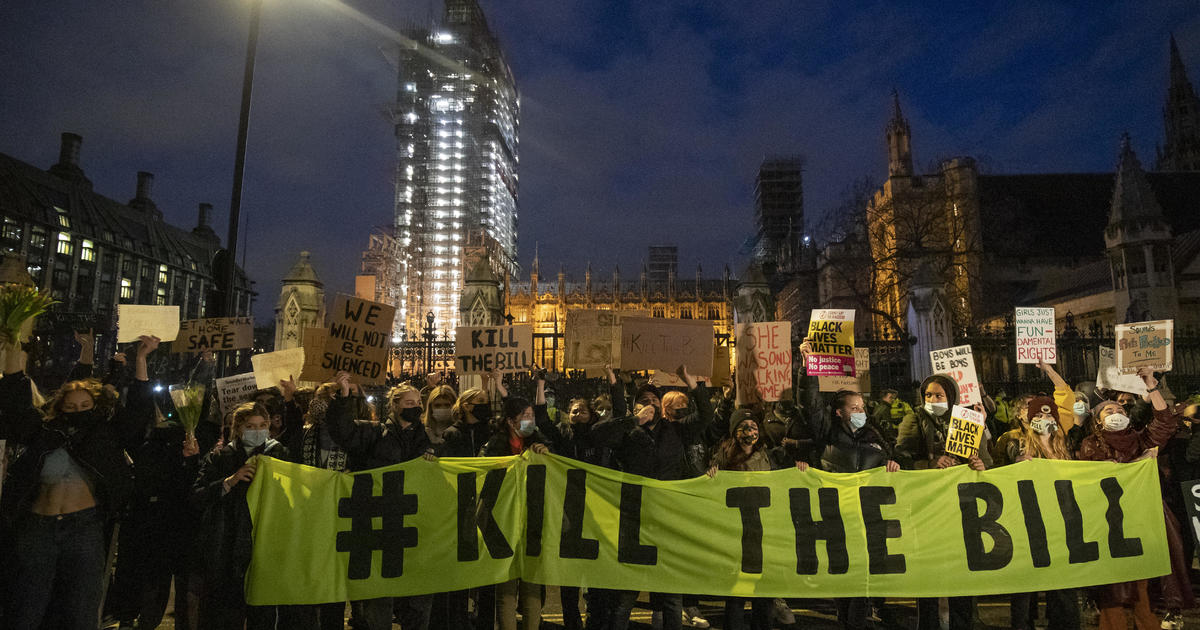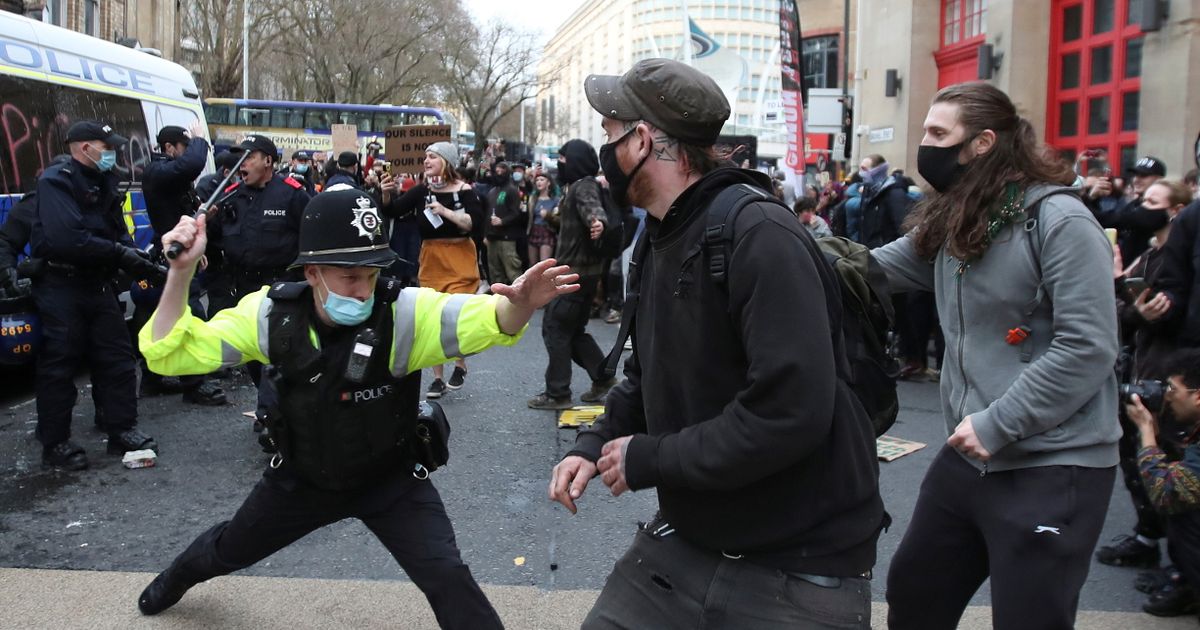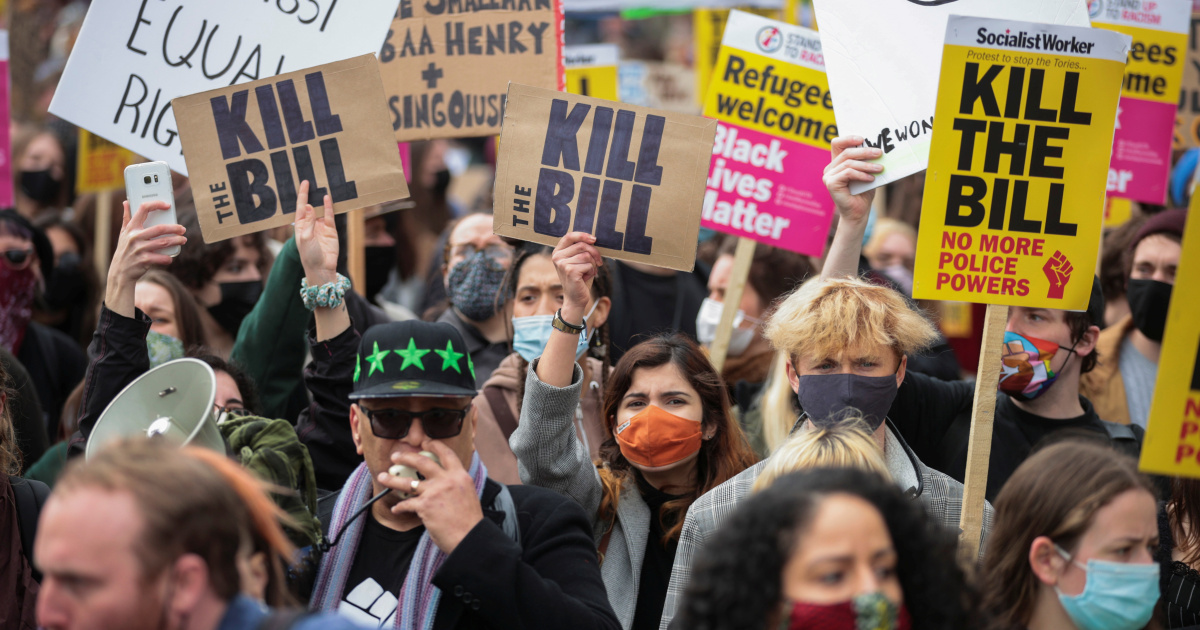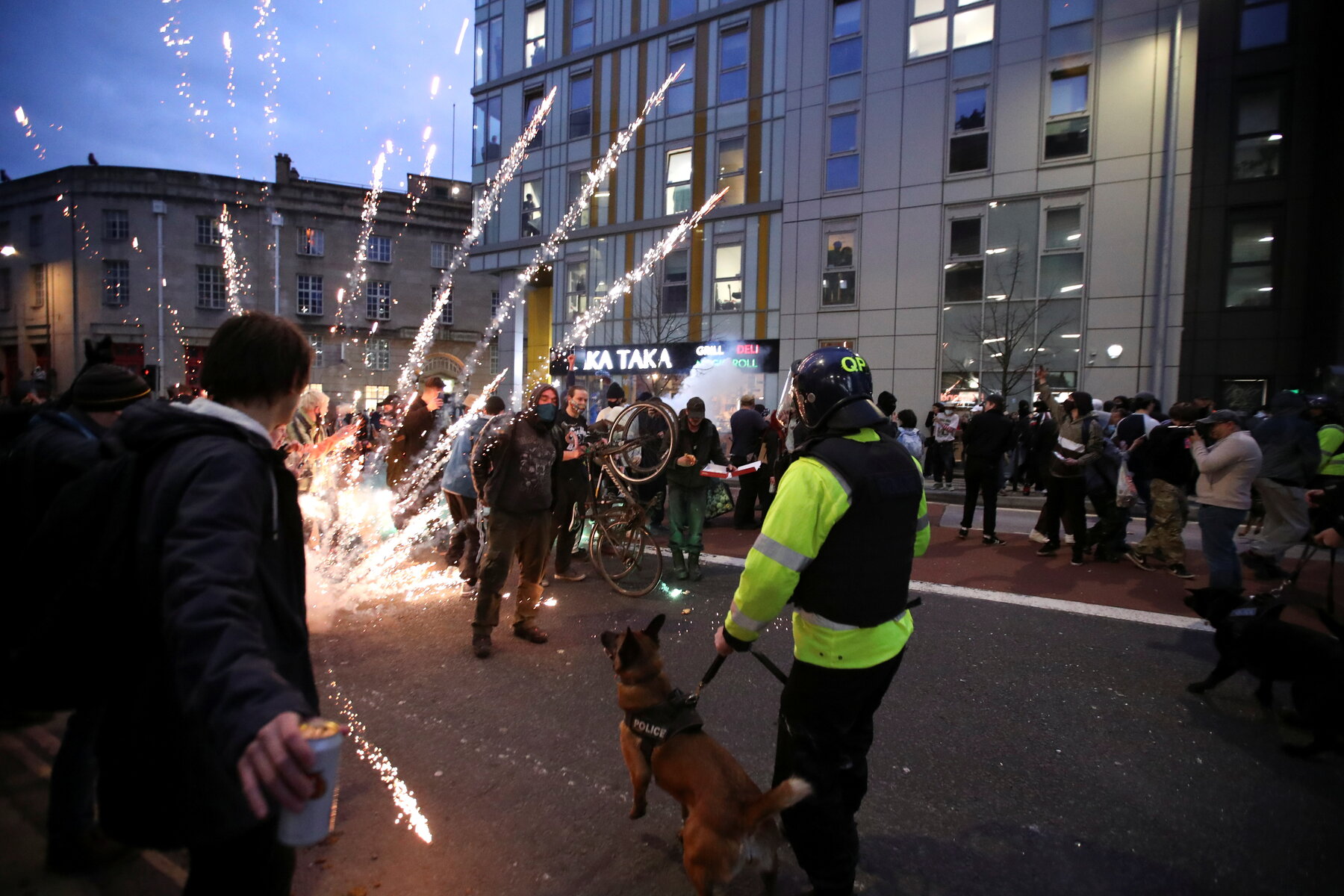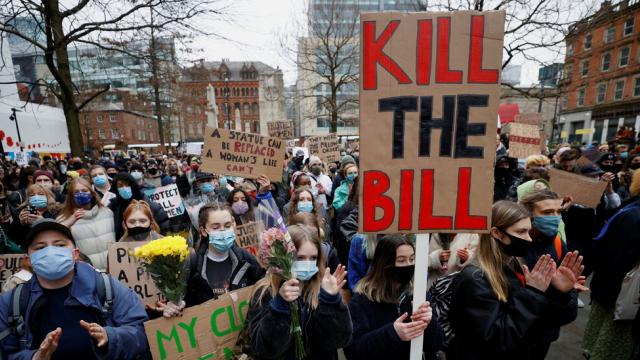
The long Easter weekend saw thousands of demonstrators join rallies and marches across Britain as part of a high-prolife censure of a proposed new law that would give police extra powers to curtail protests.
Protestors gathered in 25 cities across England and Wales to support the “Kill the Bill” movement, which opposes the 307-page Police, Crime, Sentencing and Courts Bill that would hand the government and police greater powers to crack down on peaceful protests.
In Manchester, more than 400 people joined the rally on April 4, shouting, “Kill the bill!” and carrying “Defend the right to protest” banners. Similar scenes took place in London, where hundreds gathered in Parliament Square to protest what they believe is a step towards authoritarianism and an erosion of individual freedoms.
“Profoundly disturbing”
In Bristol over that weekend, more than a thousand people rallied for the city’s fifth Kill the Bill demonstration in two weeks. The series of protests in Bristol were fraught with violent clashes between demonstrators and police. While police defended their tactics at the protests, where riot gear and horses were deployed, observers labelled their actions “police brutality” and described them as “profoundly disturbing.”
The passions demonstrated in the nationwide protests were an acknowledgment of the extent people are willing to go to defend hard-won democratic rights. Without a fight, many fear, their very democratic rights to assemble are at risk of erosion.
The Police, Crime, Sentencing and Courts Bill is a huge piece of legislation, consisting of major government proposals related to crime and justice in England and Wales. At the heart of the bill – and the hostile reaction it has created – are changes to the rights to protest.
If the bill is fully legislated, police officers will be able to put greater conditions on static protests. They will have the power to impose a start and finish time on protests, set noise limits, and apply the same rules to one-person demonstrations.
The proposed law includes the offence of “intentionally or recklessly causing public nuisance,” which is intended to prevent people from occupying public spaces.
Another notable and particularly criticized measure of the bill asserts that damage to monuments could lead to a 10-year prison sentence – meaning the defamation of statues would translate into heftier sentencing than some sexual violence offences.
The proposals are significantly tougher than current legislation which stipulates that police need to be able to prove protestors knew they had been told to move on before they can be accused of breaking the law.
Despite the draconian anti-protest clauses, March 16, 2021, saw Members of Parliament vote in favour of the government’s contentious policing bill. The bill was passed by 359 votes to 263. Having got over a significant hurdle, the bill will now enter a committee stage where it will be assessed further before it is passed in full and handed over to the Lords.
A threat to democracy
The passing of the bill in parliament ignited anger among opponents who believe such legal measures could pose a threat to democracy, quell freedom of speech, and hand the Home Secretary Priti Patel and the police more discretionary powers that will undermine civil liberties.
The timing of the passing of the bill to boost the policing of protests could not be worse.
Opposition toward the legislation rocketed following the police’s handling of a vigil to honour Sarah Everard, a 33-year-old woman who disappeared when walking home in South London on the evening of March 3, 2021. On March 10, Sarah Everard’s remains were found in Kent. Wayne Couzens, a Metropolitan Police officer, was arrested on suspicion of Everard’s kidnapping and murder.
The story took an even more sinister turn when the vigil on Clapham Common in remembrance of Everard turned violent. Mourners had attended the vigil to lay flowers, cards and notes in tribute to Everard at the Common’s bandstand.
Attendees described the mood at the vigil as turning quickly sour. Footage and images of police officers manhandling the women and pinning them to the ground went viral, with observers describing the police action as “violent, aggressive and intimidating.”
“It’s sickening given that women had just come together to grieve a woman who had allegedly been killed by a police officer. And then the police felt they had the right to brutalise the women who had gone to Clapham Common that day,” one attendee told TIME.
‘Bitter feminist irony’
In what’s been described as “bitter feminist irony,” the brutal police reaction to the women who gathered in South London to remember Sarah Everard was presided over by the first female Metropolitan police commissioner, Cressida Dick.
Dick defended the police’s response to the vigil, pinning the police intervention on concerns about the spread of coronavirus.
Antagonised by the appalling treatment by police of women gathering to mourn a young woman allegedly murdered by a police officer has led to escalated protests against the proposed policing bill.
Following a week of demonstrations against the police crackdown on the vigil for Sarah Everard, a peaceful march in Bristol against increasing police powers turned violent on March 21 as protestors clashed with police and threw fireworks into the crowd.
In response to the clashes, Home Secretary Priti Patel described protesters’ actions as “thuggery and disorder by a minority.”
To many, the most infuriating and frustrating element of the violence in Bristol is that it could serve as bait to move forward and officially legislate the contentious policing bill. Bristol’s mayor, Marvin Rees, warned that such violence is counterproductive, saying that rather than stopping government proposals to increase police powers, the “lawlessness on show” will be “used as evidence and promote the need for the bill.”
The violent scenes and disorder may have marred the Kill the Bill protest in Bristol, providing Priti Patel the “evidence” she needed to argue why the draconian new measures should go through.
The bill has been criticised for doing very little to target male violence and protect women. Instead, its authors chose to focus on penalising those guilty of damaging statues and monuments in Britain with greater force.
The growing, impassioned movement to preserve the right to free speech and protest has shown that the UK government’s drive to silence people – through a bill that undermines civil liberties and the centuries-old, deep-rooted tradition of peaceful dissent in Britain, especially against government policy – won’t be won without a fight.

